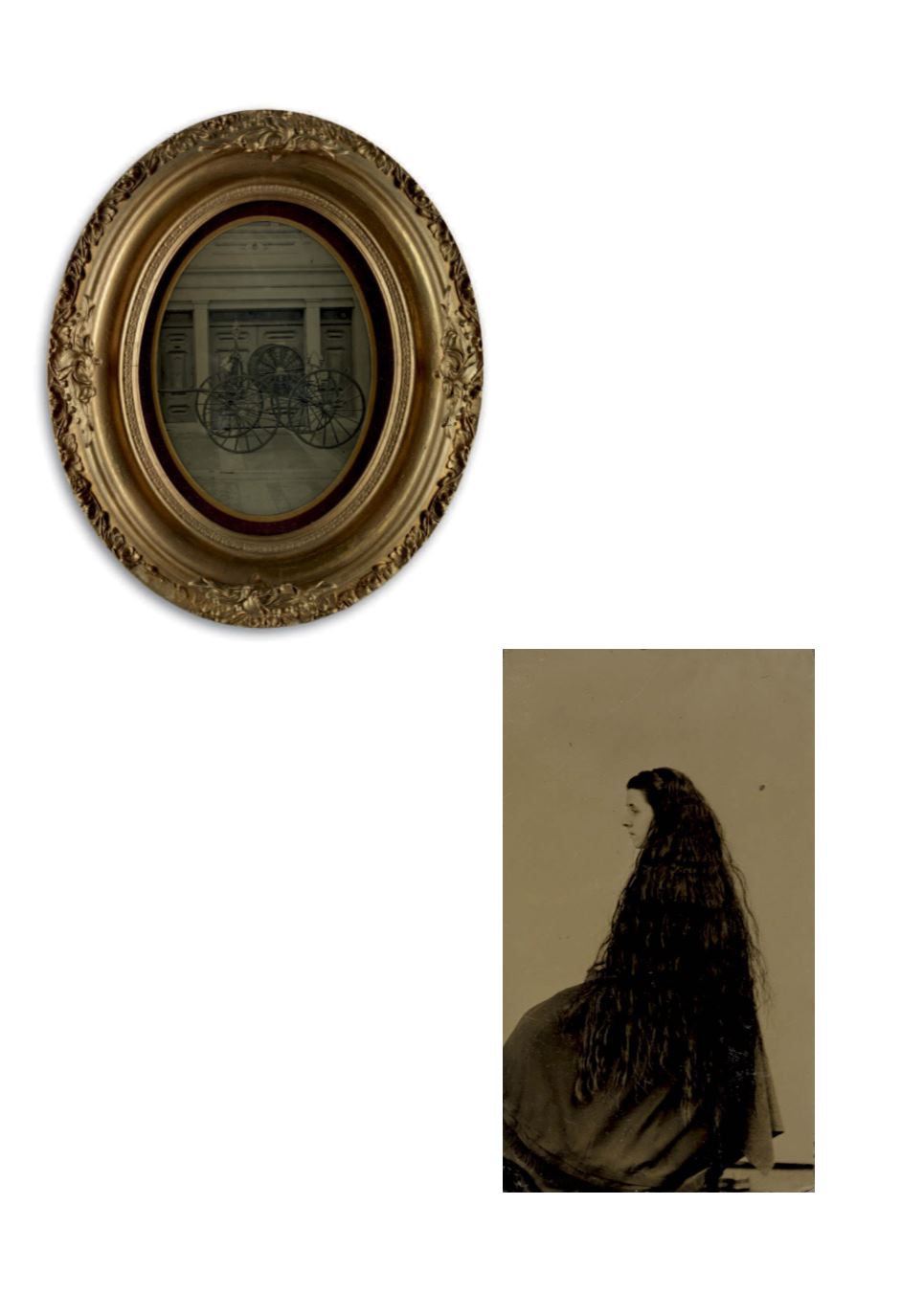

in a dress riding a rocking horse, a number of
subjects with pets, an outdoor scene of a general
store, and an image of cricket players); and one
ninth-plate of an elderly man with a cane;
approximately a quarter are partially cased in
leather and union cases. 1860s-90s
[1,800/2,200]
WITH—A binder including approximately 330
fine tintype portraits, mostly sixth-plates, with
some slightly larger. 1860s-90s and 1930s (2)
AND—A folk art tintype frame constructed with
faux bamboo and 28 individual tintypes mounted
around the border, overall measuring 23
1
/
2
inches
(59.6 cm.) square.The tintypes presumably depict
members of an extended family, as many appear to
be from the same photographer’s studio.The frame
displays a carpet travel bag, with delicate
beadwork, illustrating a billowing steam train
moving through the countryside, with an extended
handwritten caption, dated 1919, on verso.
254
●
(AMERICANTINTYPES)
A group of 93 rare and interesting
American tintypes, comprised of playful
portraits, outdoor scenes, African
American subjects, Civil War figures,
musicians, and occupational studies.
With 2 full-plates (including a framed image
of an early fire hose carriage, and 4 women
posing in front of a home with a wrap-
around porch); 4 half-plates (including a
father and son posing by a Rodman cannon,
a hand-tinted portrait of a man in his horse-
drawn carriage, and a stern portrait of a Civil
War figure); 8 quarter-plates (including a
womens sharpshooting team, a full fire
brigade, and a pair of portraits depicting
banjo players); 78 sixth-plates (including a
profile portrait of a woman with knee-length
hair, various African American subjects, a
host of occupationals, card players, a pair of
hikers, fisherman, beer drinkers, a young boy
















